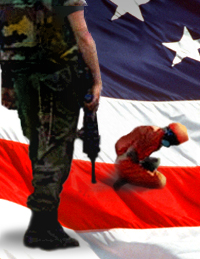The report states it is based mostly on documents released to the public through the ACLU Freedom of Information Act lawsuits as well as those voluntarily released by the Department of Justice or the Department of Defense.
Other findings:
- Each of these entities has identical motives to destroy taped investigations as has the Central Intelligence Agency, and each can apply to its destruction of tapes an identical justification: its interest in “protecting” the interrogators. Any videotapes that may still exist are vulnerable to destruction if they have not already been destroyed.
- One Government document, for instance, reports detainee treatment so violent as to “shake the camera in the interrogation room” and “cause severe internal injury.” Another describes an interrogator positioning herself between a detainee and the camera, in order to block her actions from view.
- The Government kept meticulous logs of information related to interrogations. Thus, it is ascertainable which videotapes documenting interrogations still exist, and which videotapes have been destroyed. Such an inquiry is crucial to the evaluation—as required by Combatant Status Review Tribunal procedures, the Military Commission Act, and the Detainee Treatment Act—of the reliability of hearsay evidence against a detainee.
- The agencies or bureaus that interrogated at Guantánamo include: the Central Intelligence Agency and its Counterterrorism Center; the Criminal Investigation Task Force (CITF); the Federal Bureau of Investigation (FBI); the Behavioral Analysis Unit (BAU) of the FBI; Defense Intelligence Analysis (DIA); Defense Human Intelligence (HUMINT); Army Criminal Investigative Division (ACID); the Air Force Office of Special Investigations (OSI); and the Naval Criminal Investigative Service (NCIS). Private contractors also interrogated detainees.





